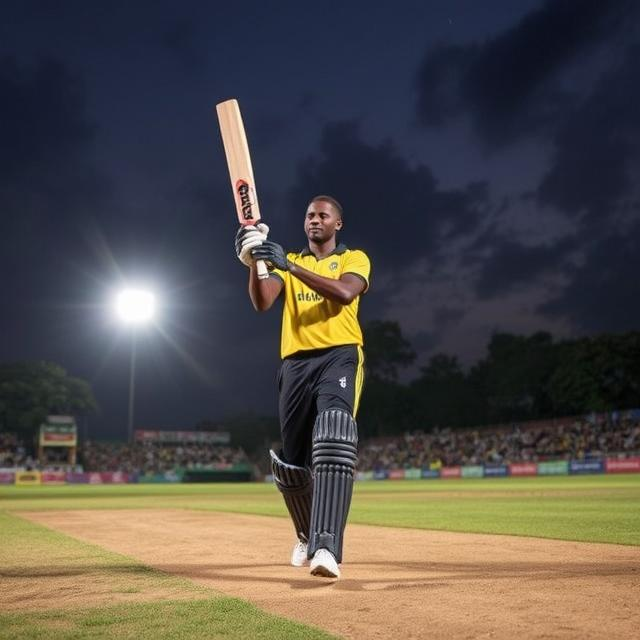Different Trials of Cricket in Pakistan

Unveiling the Diverse Trials of Cricket in Pakistan
Cricket in Pakistan isn’t just a sport; it’s a national passion, a cultural phenomenon, and a significant part of the country’s identity. From grassroots levels to international stardom, the journey of cricket in Pakistan has been marked by triumphs, setbacks, and a relentless pursuit of excellence. But what trials have shaped this journey, and how have they impacted the sport?
Click here to delve into the rich tapestry of cricket’s evolution in Pakistan.
The Genesis of Cricket in Pakistan: Early Trials and Triumphs
Pakistan’s cricketing journey began with a blend of ambition and challenges. Early trials involved establishing infrastructure, nurturing talent, and competing against established cricketing nations. The nation’s initial cricketing years were filled with both impressive performances and moments of disappointment, reflecting the broader socio-political context of the time.
The quest for consistent quality in cricket equipment and playing conditions proved to be one of the first major obstacles faced by the Pakistan cricket team. Many of the early trials took place in limited resources and inadequate facilities. The availability of skilled coaches and mentors for both youth and professional players also posed a critical problem, which led to many talented players lacking the guidance and support they needed to reach their full potential.
The Rise and Fall: Navigating the Turbulent Waters
Pakistan’s cricket journey has been characterized by significant fluctuations, punctuated by both exhilarating victories and agonizing defeats. The rise to prominence in the 1960s and 70s was accompanied by considerable internal struggles. These challenges included managing the pressure of national expectations and the demands of high-level competition. Disputes among players, team management issues, and even political interference, sometimes impacted the team’s performance in a detrimental way.
Exploring the trials and tribulations of Pakistan cricket requires understanding the interplay between the sport and broader societal factors. Economic conditions, political instability, and social pressures have, at times, profoundly impacted the players’ mental fortitude and performance, both domestically and in international matches.
From Grassroots to Glory: Identifying and Cultivating Talent
Pakistan’s success hinges on developing a robust talent pipeline at the grassroots level. Investing in dedicated youth programs, providing comprehensive training, and nurturing young talent with focused support is a constant challenge. Access to quality coaching, equipment, and facilities is crucial for developing the necessary skills and experience for young cricketers.
The trials faced in identifying and nurturing these young talents include issues like lack of access to resources, unequal distribution of opportunity, and cultural barriers that prevent individuals from certain communities from pursuing cricket as a profession.
The International Arena: A Crucible of Trials
The international stage presents a unique set of trials for any cricketing nation. Pakistan has faced the relentless pressure of performing consistently against some of the world’s top teams. This includes navigating the complexities of international tournaments, dealing with the scrutiny of the media, and managing the psychological demands of playing in high-pressure situations.
Pakistan’s cricketers have also confronted the issue of match fixing and other forms of corruption. These incidents have cast a long shadow over the sport, eroding public trust and creating a climate of suspicion.
Challenges of Modern Cricket: Adapting to Change
Modern cricket is constantly evolving, and Pakistan must adapt to these changes to remain competitive. The introduction of T20 cricket, with its fast-paced nature and different skill sets, requires a tailored approach. This evolution means facing new trials in player recruitment, training techniques, and strategic approaches. Changes in player roles and responsibilities have also presented new trials for teams across the globe.
Staying ahead of the curve requires continual innovation in training methods, player development, and leveraging technology in areas like coaching and scouting. This includes training players to adapt to the mental aspect of the high-pressure, fast-paced environment of modern cricket. The challenge of balancing the intense demands of international competition with the pressures of personal life and well-being, a constant concern for all professional athletes, is further heightened by the fast-paced and demanding nature of the sport.
The Role of Administration and Support Systems
A crucial element in the success of any cricketing nation is a robust administrative structure. Pakistan’s cricketing administration must be transparent, efficient, and committed to the growth and welfare of players. The trials and struggles include dealing with financial constraints, managing stakeholder expectations, and navigating the complexities of governance and support structures. It’s essential to find and develop leaders who can inspire and guide the team to achieve their goals.
The creation and maintenance of supportive environments for players and coaches are essential for maintaining the mental well-being of the players while they are under intense pressure. The trials faced also include managing conflicts of interest, maintaining ethical standards, and promoting the sport’s integrity while maintaining sustainable development.
Conclusion: Embracing the Future of Cricket in Pakistan
Cricket in Pakistan stands at a crossroads. The trials faced in the past have shaped the present, and the future holds both promise and uncertainty. Continued investment in infrastructure, training, and talent development is crucial. Building robust administrative systems that focus on player welfare and maintaining the integrity of the game are essential steps toward creating a more sustainable and successful future. Focusing on developing a strong sense of national unity through the sport, and continuing to inspire future generations is vital. Embracing the inevitable trials, challenges, and complexities of the future of cricket is key to ensuring the sport thrives in Pakistan.
The journey is not always easy, but the passion for cricket in Pakistan remains unwavering. The trials and triumphs, the victories and setbacks, are all part of the rich narrative that defines this iconic sport within the nation’s heart. The future of cricket in Pakistan depends on overcoming the challenges of today and embracing the opportunities of tomorrow.